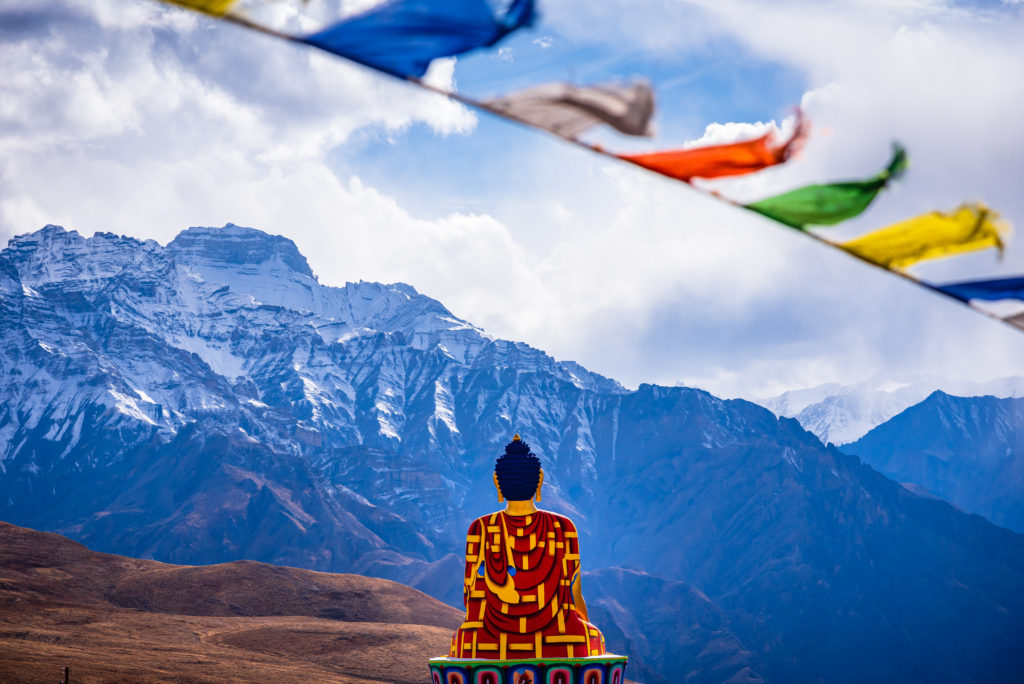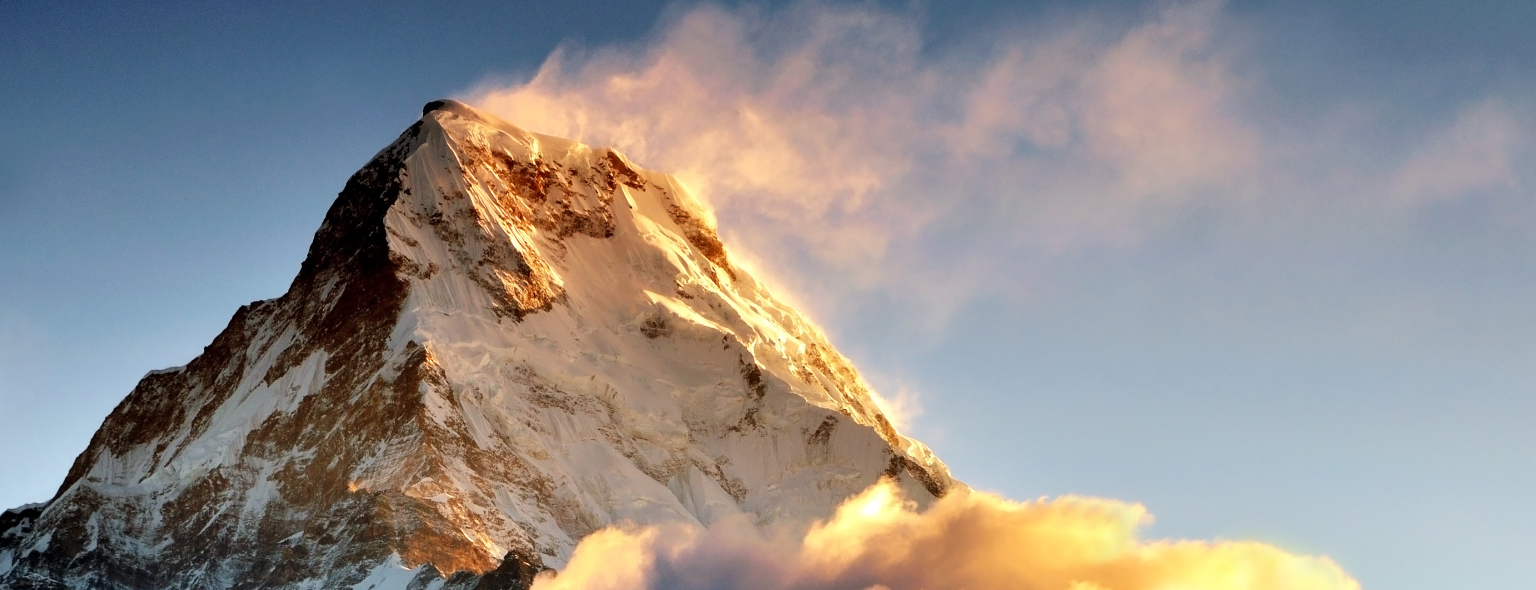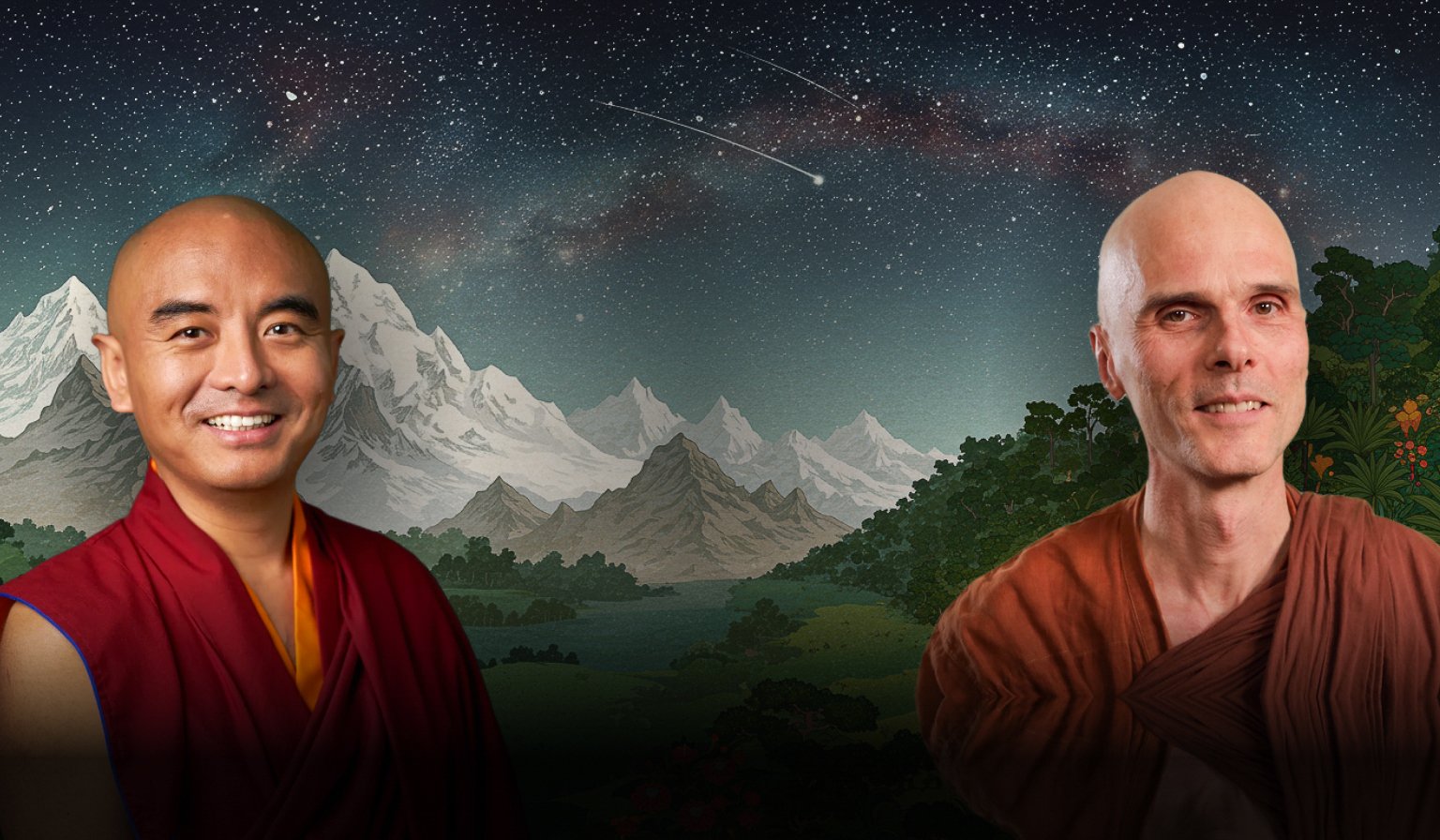
THE WISDOM ACADEMY PRESENTS
Abiding in Emptiness
Early Buddhism and Mahāmudrā in Conversation with Yongey Mingyur Rinpoche and Ven. Anālayo
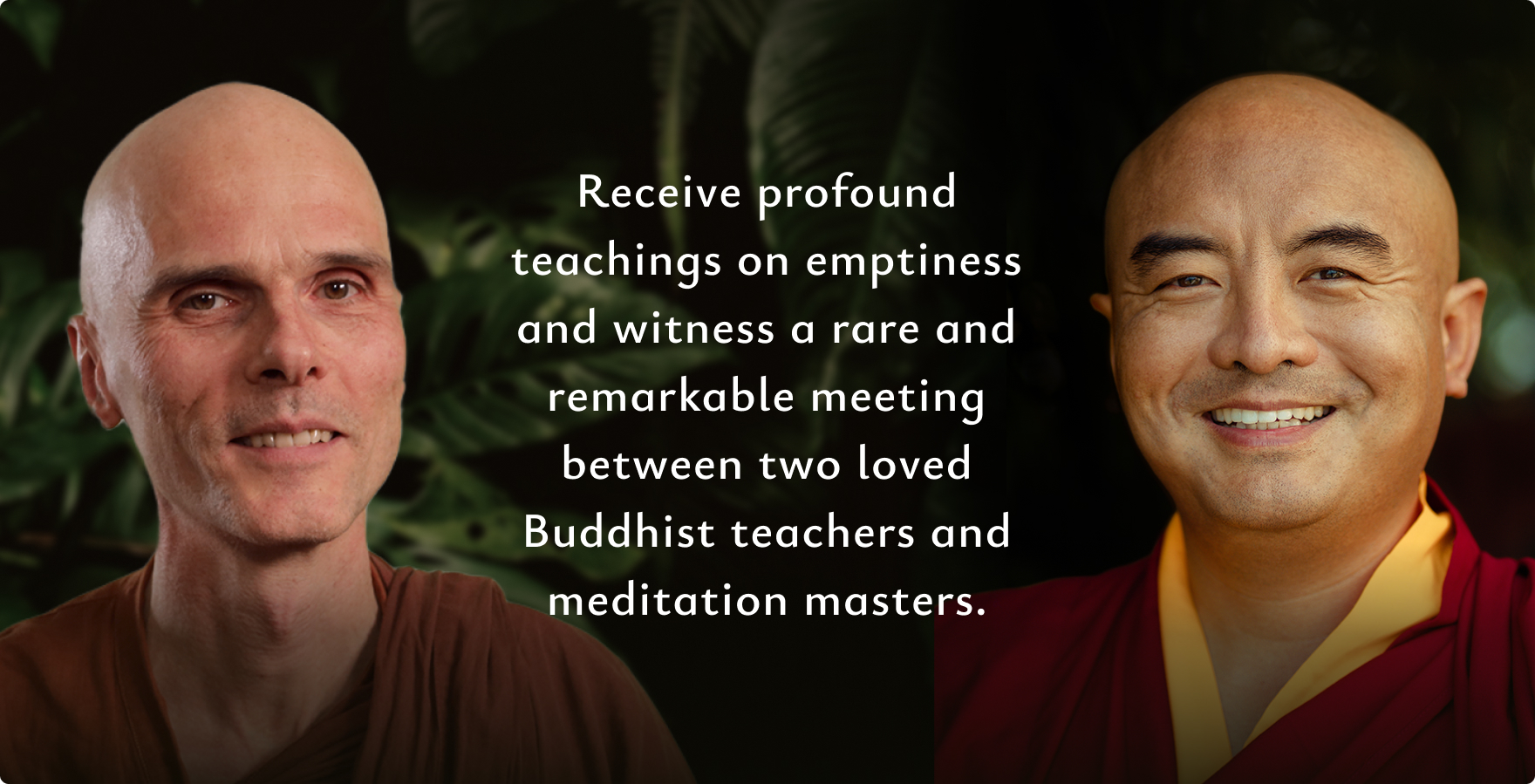

These teachings will guide you through the heart of emptiness as you witness two masterful teachers, from two distinct traditions of Buddhism, discuss some of the most profound aspects of the Dharma.
Tuition: $397
After enrolling, check your email for a welcome email with instructions on how to take the course. When you enroll in any Wisdom Academy course, you agree to our terms of use. Enrolled students have lifetime access to course materials. Wisdom is a 501(c)(3) nonprofit. Your tuition supports the creation of more courses like this one. Thank you! For more about our terms, please see the Wisdom Academy FAQ.
How might the Buddha have meditated?
Starting with this fascinating question, this online course will take you on a journey through the diverse world of the Dharma as you explore selflessness, signlessness, and emptiness.
You’ll get to learn about how Rinpoche and Venerable understand key Buddhist teachings through their different traditions, and listen as they discover fascinating differences and commonalities.
In the end, we think you’ll come away with your practice and your understanding significantly enriched and supported by the guidance of these two wise and compassionate guides.
As a student in this course, you will
• find out how two very different Buddhist traditions teach about emptiness;
• listen as two profoundly wise and experienced teachers talk together, sharing their insights and asking each other questions;
• learn simple, practical, and tremendously helpful methods for seeing emptiness clearly in your daily life;
• and much more!
Click the button below to get access!

Lesson 1: How the Buddha Might Have Meditated
In this unique introductory lesson, Yongey Mingyur Rinpoche and Venerable Bhikkhu Anālayo explore the intersections between Mahāmudrā and Early Buddhism. In discussing how the Buddha Shakyamuni might have meditated, Mingyur Rinpoche and Venerable Anālayo compare common elements of practice such as emptiness, selflessness, and signlessness.

Introduction to Meditation in Early Buddhism
Venerable Anālayo begins with a lecture and meditation exploring The Shorter Discourse on Emptiness, looking at the universality of the practice of abiding in emptiness throughout Buddhist traditions. Focusing on the four establishments of mindfulness, Venerable Anālayo guides a meditation through the dissolving of the elements and letting go of the solidity of experience.

Lesson 3: Breathing Emptiness
Mingyur Rinpoche explores the Mahāmudrā perspective of the mind and its emptiness, emphasizing the crucial nature of the experiential aspect of awareness of the mind to the Mahāmudrā path. Using the breath, awareness can gently be established without grasping or controlling, leading to progress in realizations of all four Noble Truths.

Lesson 4: Recognizing Selflessness
Venerable Anālayo goes further into the practice of emptiness, turning attention to the self. By shifting our attention, the pervasive power of feelings, perceptions, contact, and intentions can be loosened and the mind can begin to know itself.

Lesson 5: Meditation and the Luminous Mind
Like gravity, the true nature of awareness is ever-present in our experience and can be sensed at any time, Mingyur Rinpoche explains. Recognizing awareness, the clear and knowing, self-luminous aspect of the mind provides the fundamental basis for Mahāmudrā practice. Abiding in that state constitutes a basis for śamatha, while investigation of the subjects that arise to awareness constitutes a basis for vipaśyanā.

Lesson 6: The Path of Signlessness
Venerable Anālayo provides teachings on identifying signs and signlessess, illustrating how the mind recognizes identities and labels. Venerable Anālayo explains the experience of the signless and that which knows takes on an infinite character, the appropriation of experience is lessened, and the mind can rest in the state of emptiness.

Lesson 7: Abiding in Signlessness
Mingyur Rinpoche gives final instructions on traversing the path of emptiness, looking at how to apply these transformative teachings to everyday life. Rinpoche provides examples of deconstruction techniques and methods to transform everyday awareness into the path, enriching life with wisdom and compassion.
• How much does it cost? Tuition is $397. Your tuition fee helps support Wisdom’s nonprofit mission so we can create more amazing courses for you!
• When does the course start? This entire course is available now in self-study mode. You can enroll at any time and take this course at your own pace.
• Will I lose access? No, you will retain ongoing access.
• Are there any live components? Enrolled students are encouraged to take part in forum discussions, but there are no events at specific times. This means you can return to the course flexibly and adapt it to your schedule.
For more about our terms, please see the Wisdom Academy FAQ.
Click the button below to get access!
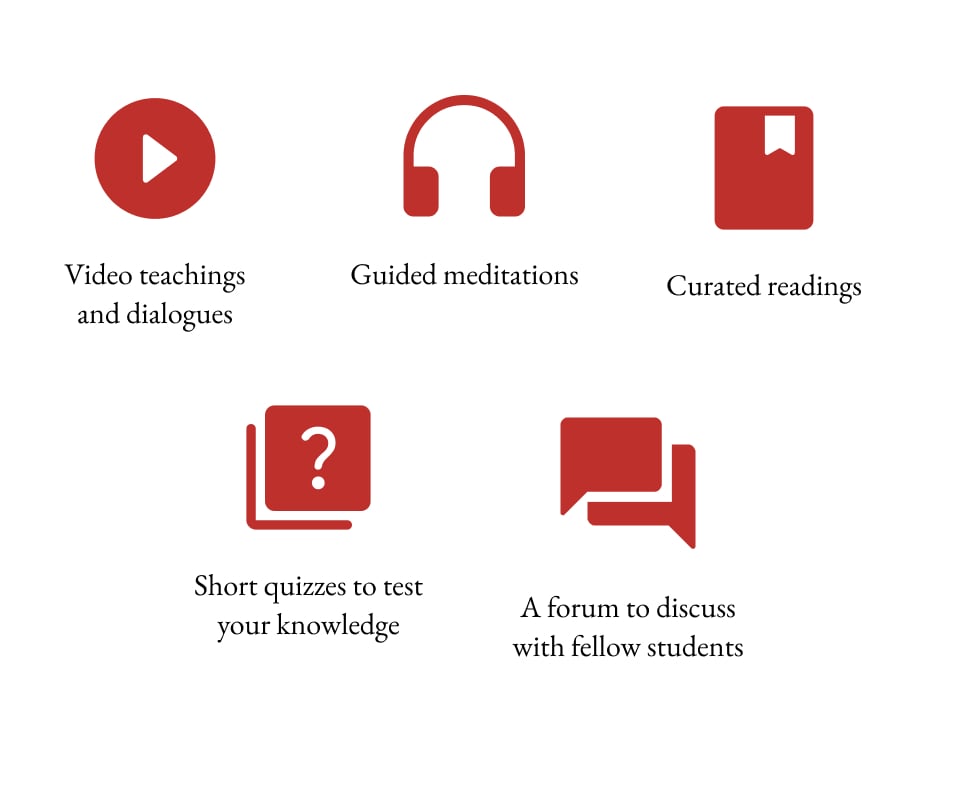
1) If you want the opportunity to receive teachings from two renowned teachers;
2) If you want to learn about how different Buddhist traditions teach emptiness;
3) If you want to learn how to see emptiness in everyday life so you can develop greater wisdom and compassion, become free of the kleśas, and experience more freedom.
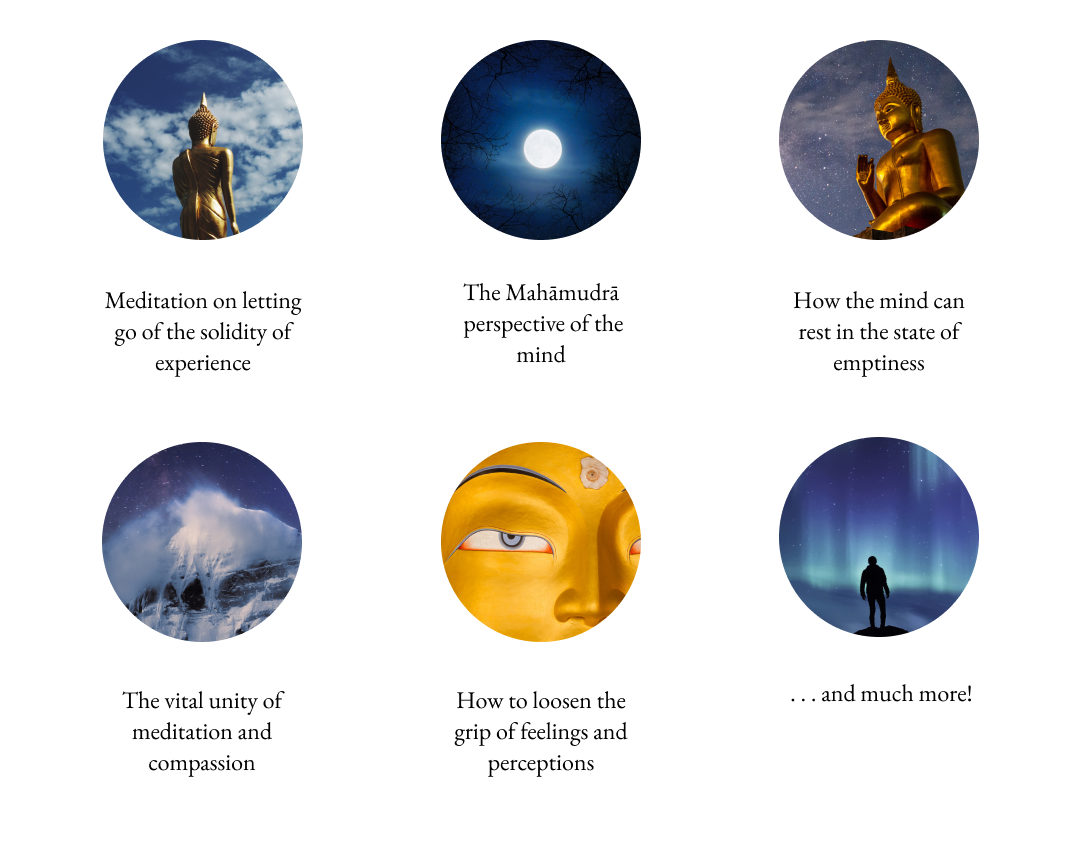
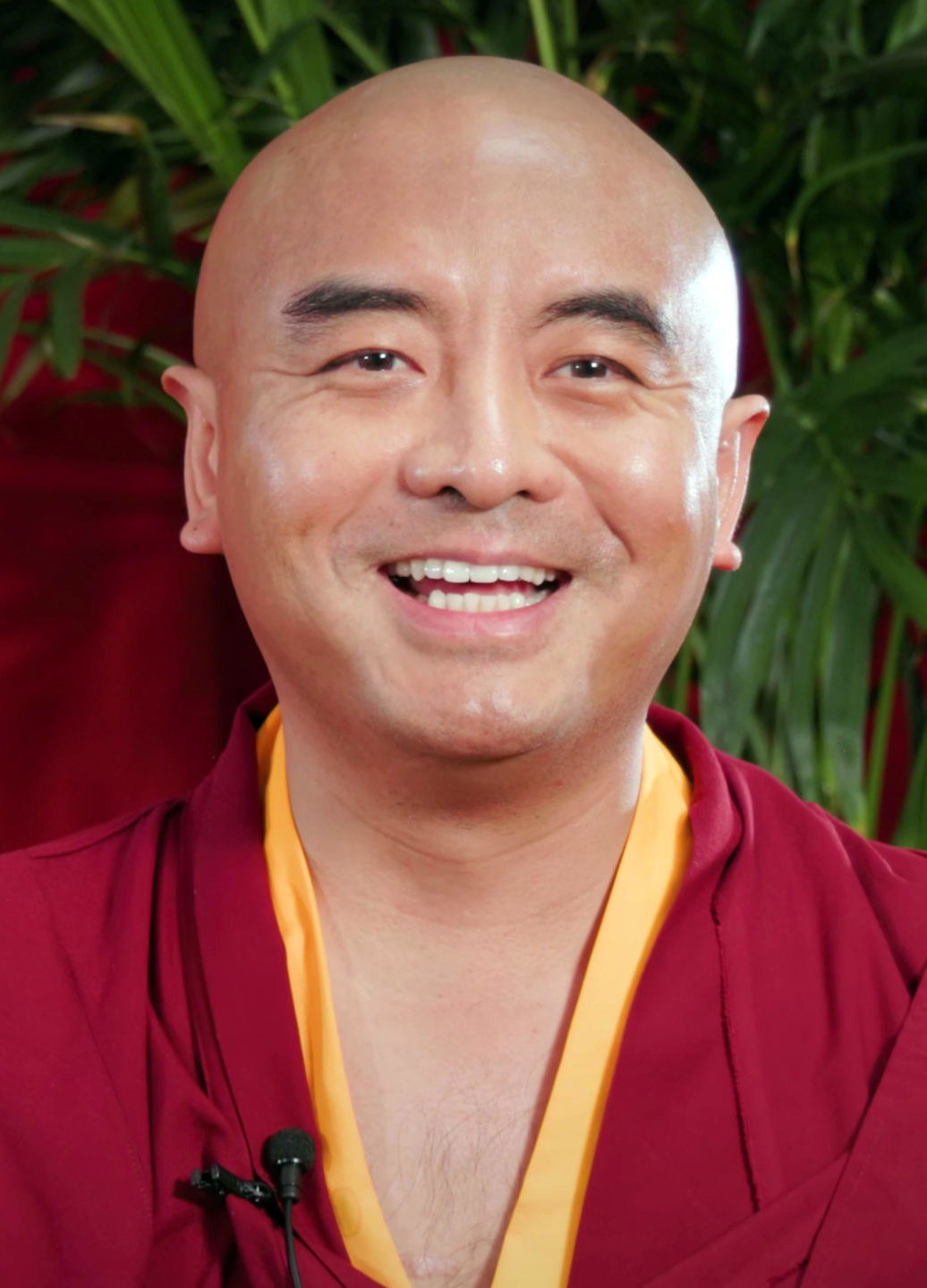 Yongey Mingyur Rinpoche is the author of bestselling books (including The Joy of Living and In Love with the World) and oversees the Tergar Meditation Community, an international network of Buddhist meditation centers. He is the son of the renowned meditation master Tulku Urgyen Rinpoche and was formally enthroned as the seventh incarnation of Yongey Mingyur Rinpoche by Tai Situ Rinpoche when he was twelve years old. When he was twenty years old, Rinpoche was appointed as the functioning abbot of Sherab Ling Monastery. In addition to his extensive background in meditation and Buddhist philosophy, Mingyur Rinpoche has held a lifelong interest in psychology, physics, and neurology. He teaches regularly throughout Europe, North and South America, and Asia.
Yongey Mingyur Rinpoche is the author of bestselling books (including The Joy of Living and In Love with the World) and oversees the Tergar Meditation Community, an international network of Buddhist meditation centers. He is the son of the renowned meditation master Tulku Urgyen Rinpoche and was formally enthroned as the seventh incarnation of Yongey Mingyur Rinpoche by Tai Situ Rinpoche when he was twelve years old. When he was twenty years old, Rinpoche was appointed as the functioning abbot of Sherab Ling Monastery. In addition to his extensive background in meditation and Buddhist philosophy, Mingyur Rinpoche has held a lifelong interest in psychology, physics, and neurology. He teaches regularly throughout Europe, North and South America, and Asia.
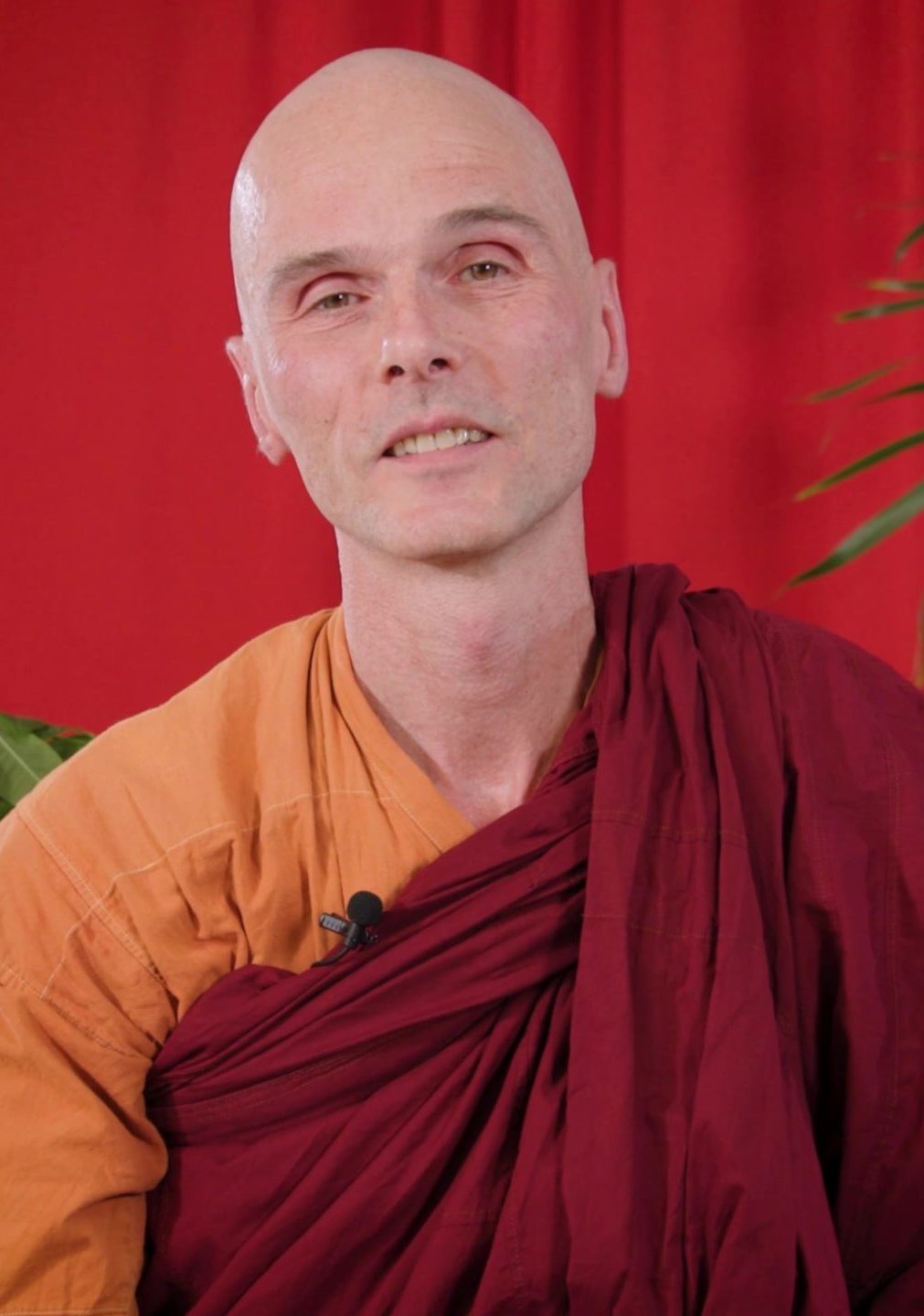 Bhikkhu Anālayo is a scholar-monk who was born in Germany in 1962 and ordained in Sri Lanka in 1995. He completed a PhD thesis on the Satipaṭṭhāna Sutta at the University of Peradeniya in 2000, which was later published as Satipaṭṭhāna: the Direct Path to Realization. During the course of that study, he had come to notice the interesting differences between the Pāli and Chinese Buddhist canon versions of this early Buddhist discourse. This led to his undertaking a habilitation research at the University of Marburg, completed in 2007, in which he compared the Majjhima Nikāya discourses with their Chinese, Buddhist Hybrid Sanskrit and Tibetan Buddhist canon counterparts.
Bhikkhu Anālayo is a scholar-monk who was born in Germany in 1962 and ordained in Sri Lanka in 1995. He completed a PhD thesis on the Satipaṭṭhāna Sutta at the University of Peradeniya in 2000, which was later published as Satipaṭṭhāna: the Direct Path to Realization. During the course of that study, he had come to notice the interesting differences between the Pāli and Chinese Buddhist canon versions of this early Buddhist discourse. This led to his undertaking a habilitation research at the University of Marburg, completed in 2007, in which he compared the Majjhima Nikāya discourses with their Chinese, Buddhist Hybrid Sanskrit and Tibetan Buddhist canon counterparts.
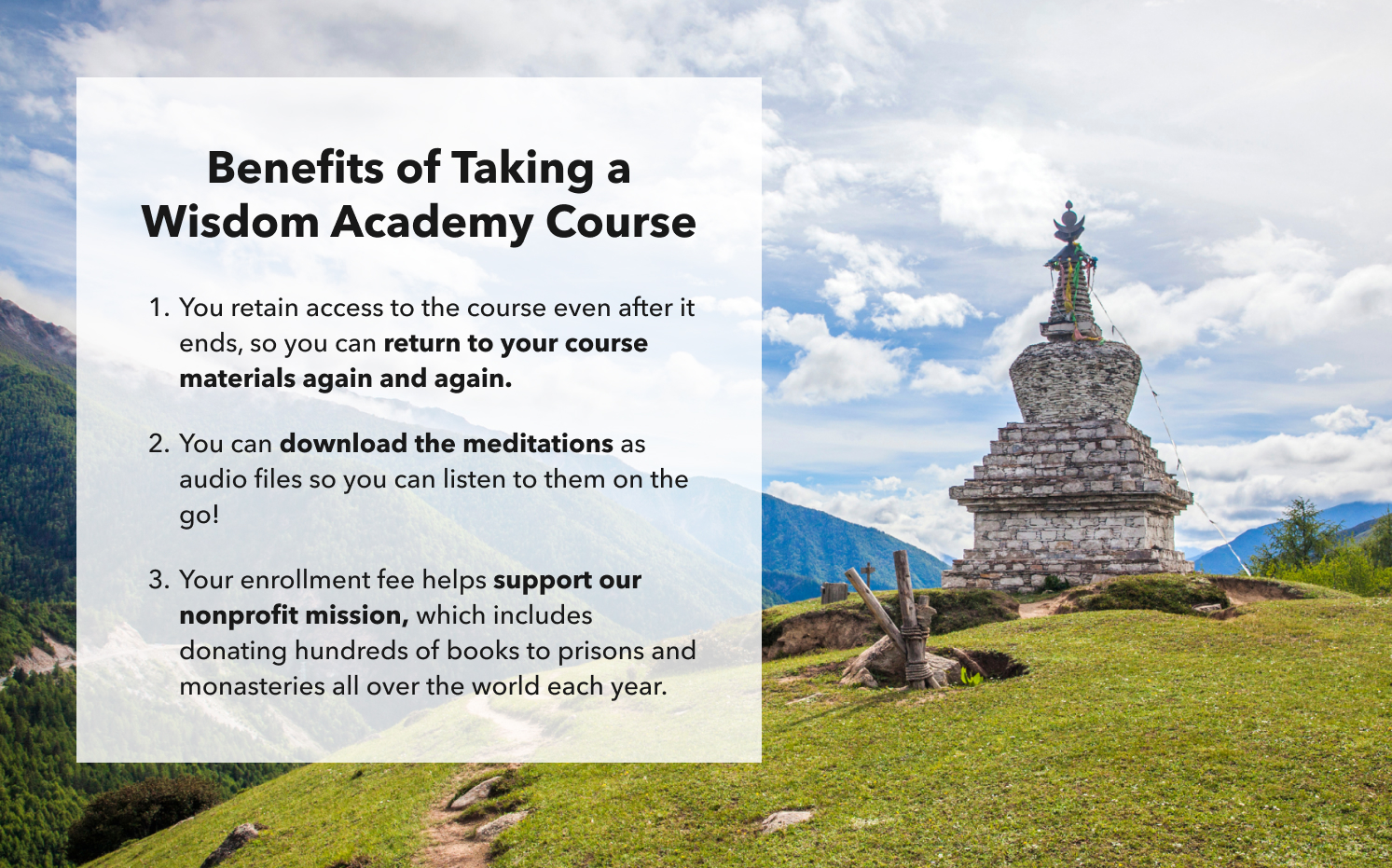
Wisdom is a 501(c)(3) nonprofit organization. When you purchase from Wisdom or make a donation, you are helping us to continue our mission: to make the Dharma as widely available as possible. Thank you!
The Wisdom Academy is the leading provider of high-quality online courses about Buddhism and meditation.
The Wisdom Academy was founded in 2016. Since then, we’ve grown to be the leader in online Buddhist learning, with over 45 courses and thousands of students enrolled.
In the Academy, dedicated students come together with beloved teachers to learn authentic philosophy and practices for awakening.
Our courses offer teachings on Dzogchen, shamatha, mahamudra, vipassana, mindfulness, jhana, and much more. The clear, progressive structure of the courses will support you in learning about the profound philosophy and practices of the Dharma. You’ll discover the vivid and immediate ways that the teachings can create more ease, joy, and freedom in your daily life. Click here to learn more and explore our course catalog.
![]()




